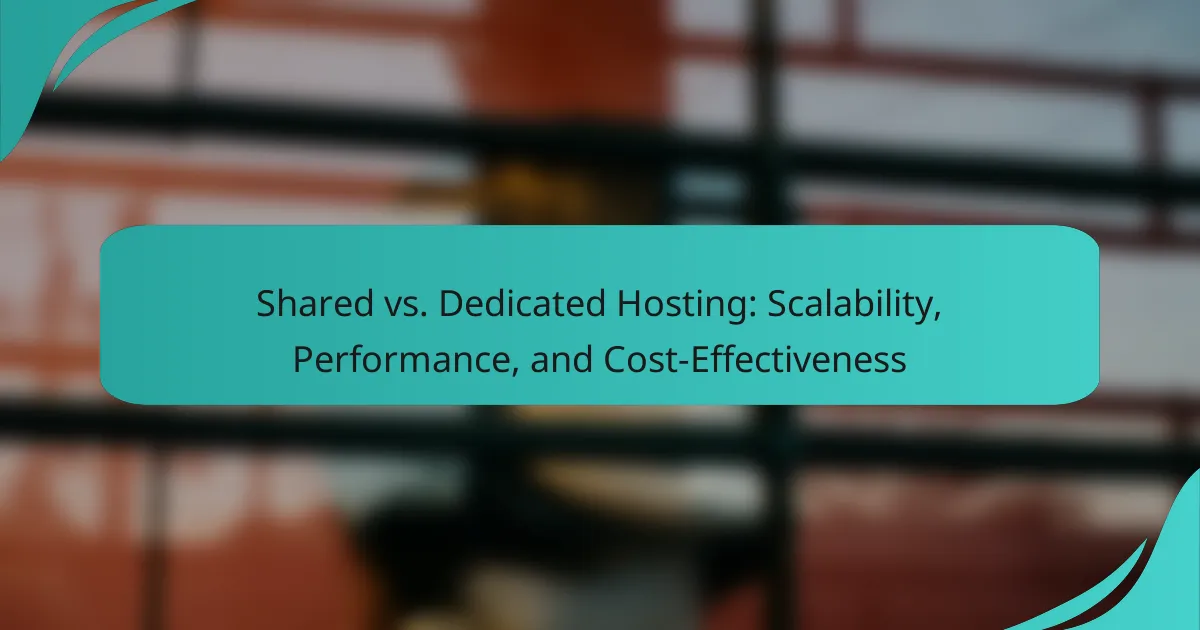When selecting a hosting provider, it’s essential to consider those that offer flexible upgrade options and customization features. These providers enable businesses to adapt their hosting solutions to meet evolving demands through scalable plans and tailored server configurations. By choosing a provider with these capabilities, companies can enhance performance, optimize costs, and ensure security while effectively managing their resources.

What flexible upgrade options do hosting providers offer in Canada?
Hosting providers in Canada offer various flexible upgrade options to accommodate changing needs, including scalable plans, pay-as-you-go pricing, resource allocation adjustments, and customizable server configurations. These options allow businesses to adapt their hosting solutions as they grow or face fluctuating demands.
Scalable plans
Scalable plans enable users to increase or decrease their hosting resources based on current requirements. For instance, a small business can start with a basic shared hosting plan and easily upgrade to a VPS or dedicated server as traffic grows. This flexibility helps avoid overpaying for unused resources while ensuring performance during peak times.
When choosing a scalable plan, consider the provider’s upgrade process and any potential downtime involved. Look for options that allow for seamless transitions to minimize disruption to your website.
Pay-as-you-go pricing
Pay-as-you-go pricing models charge users based on actual resource usage rather than a fixed monthly fee. This approach is particularly beneficial for businesses with fluctuating traffic, as it allows them to only pay for what they need. For example, a seasonal e-commerce site can scale back during off-peak months and ramp up during busy seasons without incurring unnecessary costs.
When evaluating pay-as-you-go options, check for any hidden fees or minimum usage requirements that could impact your budget. Ensure that the pricing structure is transparent and aligns with your expected usage patterns.
Resource allocation adjustments
Resource allocation adjustments allow users to modify their hosting resources, such as CPU, RAM, and storage, as needed. This feature is crucial for businesses experiencing sudden traffic spikes or those that require additional processing power for specific projects. Many Canadian hosting providers offer user-friendly dashboards for real-time adjustments.
Consider the ease of making these adjustments and whether they can be done instantly or require support intervention. Look for providers that offer automatic scaling features to handle traffic surges without manual input.
Customizable server configurations
Customizable server configurations enable users to tailor their hosting environment to specific needs. This includes selecting the operating system, software stack, and security settings. For example, a developer may require a specific version of PHP or a particular database setup to run their applications effectively.
When opting for customizable configurations, assess the level of technical expertise required to manage these settings. Some providers offer managed services to assist with configuration, which can be beneficial for those without extensive technical knowledge.

How to choose a hosting provider with customization features?
Choosing a hosting provider with customization features involves evaluating their flexibility in service offerings and the ability to tailor solutions to your specific needs. Look for providers that allow you to upgrade resources easily and offer a range of customizable options to suit your business requirements.
Evaluate service level agreements
Service level agreements (SLAs) define the expected performance and reliability of your hosting provider. When evaluating SLAs, pay attention to uptime guarantees, response times, and compensation policies for service interruptions. A good SLA typically offers at least 99.9% uptime and clear terms regarding support response times.
Consider the penalties for failing to meet SLA standards, as these can indicate the provider’s commitment to service quality. Ensure that the SLA aligns with your business needs, especially if you rely heavily on your website for revenue generation.
Check for user-friendly control panels
A user-friendly control panel is essential for managing your hosting environment efficiently. Look for providers that offer intuitive interfaces, such as cPanel or Plesk, which simplify tasks like domain management, file uploads, and database handling. This can save you time and reduce the learning curve for new users.
Additionally, check if the control panel allows for easy customization of settings and features. A flexible control panel can enable you to adjust resources, install applications, and monitor performance without needing extensive technical knowledge.
Assess customer support options
Reliable customer support is crucial when selecting a hosting provider. Look for options that include 24/7 support via multiple channels such as live chat, phone, and email. This ensures you can get help whenever issues arise, minimizing downtime and disruptions.
Evaluate the support team’s expertise and responsiveness by checking customer reviews and testimonials. A provider with a reputation for excellent support can make a significant difference in your overall hosting experience, especially during critical situations.

What are the benefits of customizable hosting solutions?
Customizable hosting solutions offer flexibility that allows businesses to tailor their services to specific needs, enhancing performance, cost efficiency, and security. This adaptability ensures that companies can scale their resources effectively while maintaining optimal functionality.
Enhanced performance
Customizable hosting solutions enable businesses to optimize their server configurations for specific applications, resulting in improved performance. By selecting the right resources, such as CPU power, RAM, and storage, users can significantly reduce load times and enhance user experience.
For example, an e-commerce site during peak shopping seasons may require additional bandwidth and processing power to handle increased traffic. Custom solutions allow for these adjustments without the need for a complete overhaul of the hosting environment.
Cost efficiency
With customizable hosting, businesses can avoid paying for unnecessary resources, making it a cost-effective option. Users can choose plans that align with their current needs while retaining the option to scale as their requirements grow.
For instance, a startup may begin with a basic plan and upgrade to a more robust solution as their user base expands. This pay-as-you-go approach helps manage budgets effectively, especially for small to medium-sized enterprises.
Tailored security measures
Customizable hosting solutions allow businesses to implement specific security measures that align with their operational needs. This includes selecting firewalls, SSL certificates, and intrusion detection systems tailored to protect sensitive data.
For example, a financial services company may require advanced encryption and compliance with regulations like GDPR or PCI DSS. Custom solutions enable these organizations to meet stringent security standards while ensuring their hosting environment is secure and reliable.

What factors influence the pricing of hosting upgrades?
The pricing of hosting upgrades is influenced by several key factors, including resource usage, service type, and contract length. Understanding these elements can help you make informed decisions about which upgrades best suit your needs and budget.
Resource usage
Resource usage directly impacts the cost of hosting upgrades, as higher resource demands typically lead to increased prices. This includes factors such as CPU, RAM, bandwidth, and storage. For instance, a website with high traffic may require more bandwidth and faster processing power, which can elevate the overall hosting costs.
When considering upgrades, assess your current resource usage and project future needs. Many hosting providers offer tools to monitor your resource consumption, allowing you to make data-driven decisions about necessary upgrades.
Service type
The type of hosting service you choose—shared, VPS, dedicated, or cloud—affects the pricing of upgrades. Shared hosting is generally the most affordable option, while dedicated servers and cloud services can be significantly more expensive due to the exclusive resources they provide.
Evaluate the specific features and capabilities of each service type. For example, cloud hosting often allows for scalable upgrades, meaning you can adjust resources based on demand without committing to a long-term contract.
Contract length
The length of your hosting contract can influence upgrade pricing, as many providers offer discounts for longer commitments. Opting for a one-year or multi-year plan may result in lower monthly costs compared to a month-to-month agreement.
Consider your business’s growth trajectory when choosing a contract length. If you anticipate significant growth or changes in your hosting needs, a flexible month-to-month plan might be more suitable despite potentially higher costs.

What are the top hosting providers in Canada for flexible upgrades?
In Canada, top hosting providers like HostGator and Bluehost offer flexible upgrade options that cater to varying business needs. These providers allow users to easily scale their hosting plans, ensuring that as your website grows, your hosting capabilities can adapt accordingly.
HostGator
HostGator is known for its user-friendly interface and flexible upgrade paths. Users can start with shared hosting and seamlessly transition to VPS or dedicated servers as their traffic increases. This scalability is crucial for businesses that anticipate growth and need reliable performance.
When considering HostGator, take advantage of their tiered plans, which allow you to choose resources that match your current needs while providing the option to upgrade as necessary. Their customer support is also available 24/7, which can be helpful during transitions.
Bluehost
Bluehost offers a range of hosting solutions that are particularly appealing for WordPress users. Their flexible upgrade options mean you can start with a basic plan and move to more advanced options like managed WordPress hosting as your site demands increase.
With Bluehost, it’s important to evaluate your website’s growth potential and select a plan that allows for easy upgrades. Their intuitive dashboard makes managing upgrades straightforward, and they provide resources to help you understand when it’s time to scale up your hosting capabilities.










